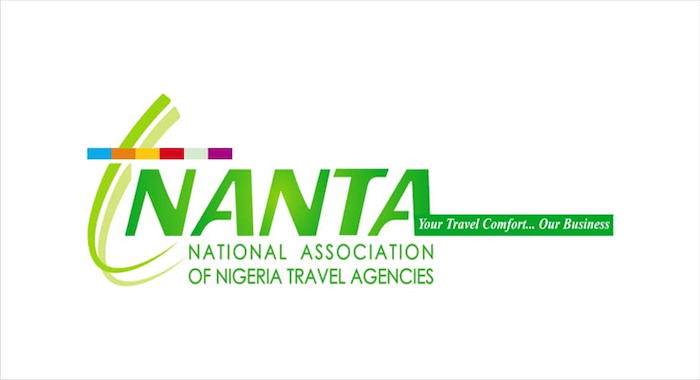Airline passengers and consumer groups across Nigeria have intensified pressure on foreign carriers after revelations that several are refusing to accept naira payments for ticket purchases. The backlash comes amid growing public resentment over what many describe as discriminatory and economically insensitive practices, especially at a time when preserving the value and usage of the naira is a key government objective.
Critics say the refusal by these airlines to transact in naira runs counter to Nigeria’s laws, which require that goods and services within the country be priced and paid for in the national currency. They argue that the airlines’ insistence on credit cards, foreign currencies, or other payment mechanisms effectively bars many ordinary Nigerians from participating in air travel, and sends a message that local currency is unwelcome in crucial sectors.

The National Association of Nigerian Travel Agencies (NANTA) has been among the loudest voices decrying the practice. It has formally called on regulators to hold the errant airlines accountable and to enforce existing statutes that mandate transactions be conducted in naira. Travel agencies report that some ticketing platforms automatically reject naira as a payment option for international and domestic flights operated by the offending carriers, forcing customers to use foreign cards or alternative means.
Government and regulatory bodies are now under pressure to respond. Some aviation watchers expect the Federal Government to summon the airlines in question for explanation or to impose sanctions should they fail to comply. The expectation is that regulators will invoke both aviation law and consumer protection provisions to ensure that airlines operating in Nigeria respect national monetary policy.
In some recent cases, local airlines have also been linked to the controversy. For example, in the run-up to the 2025 Hajj operation, several Nigerian carriers reportedly refused to sign contracts with the National Hajj Commission of Nigeria (NAHCON) over disagreements on payment currency. One airline source told media outlets that although the operations are domiciled in Nigeria, their costs — including aircraft maintenance, leases, spare parts, fuel, and international obligations — are denominated in U.S. dollars, making unilateral acceptance of naira impractical. The source argued that converting large sums of naira to dollars in the market would put undue pressure on the foreign exchange system and worsen currency volatility.
Supporters of the airlines contend that their stance is pragmatic rather than antagonistic. They point to exchange rate risks, forex scarcity, and challenges with remitting funds abroad as real constraints. Some airlines justify their policy by saying that accepting naira would expose them to losses when trying to convert the funds into hard currency to settle international obligations. These carriers propose that unless there is a stabilised and predictable mechanism ensuring they receive equivalent value, they cannot reliably accept naira without compromising operational viability.
Still, such arguments do little to assuage public sentiment. For many Nigerians, the rejection of the naira sends a strong negative symbol: that local currency is not trusted or valued in the aviation sector. Social media platforms have been awash with criticism, with passengers tagging airlines as elitist, unpatriotic, or dismissive of local realities.
Legal experts have weighed in, noting that Nigeria’s regulatory framework demands that transactions in Nigeria be denominated in naira. Some assert that foreign airlines operating domestic legs or servicing Nigerian customers while refusing to transact in the local currency may be violating consumer laws or even the Central Bank’s guidelines. The question now is whether regulators will act decisively, and whether any enforcement will prevail over airlines’ commercial and operational concerns.
In the interim, some travel agencies are exploring workarounds for customers inconvenienced by the policy. They are suggesting that customers use naira for upfront payments, with the agency or airline converting internally — although this sees limited cooperation from international carriers. Others are demanding that ticketing platforms provide clear payment modes in naira rather than hiding them or disabling them by default.
Observers say this clash highlights deeper structural issues in Nigeria’s financial and aviation ecosystems. The tension between preserving domestic currency use and accommodating global operational realities is not unique to airlines, but the symbolic weight is heavier when it touches air travel — a sector that many perceive as a gateway between Nigeria and the wider world.
As the standoff continues, much will depend on how regulators, airlines, and the public navigate the competing priorities of sovereignty, commerce, and financial stability. If the government forces airlines’ hands, it may provoke pushbacks or even withdrawal by carriers unwilling to absorb currency risk. If regulators stand down, public frustration may deepen and further erode confidence in the naira.
What emerges from this episode could set a precedent not just for aviation but for other sectors where foreign operators engage with Nigerian consumers. The stakes are high: either Nigeria reaffirms that its currency is central to all domestic commerce, or it concedes that in some sectors, only foreign currency is deemed acceptable.
Support InfoStride News' Credible Journalism: Only credible journalism can guarantee a fair, accountable and transparent society, including democracy and government. It involves a lot of efforts and money. We need your support. Click here to Donate
